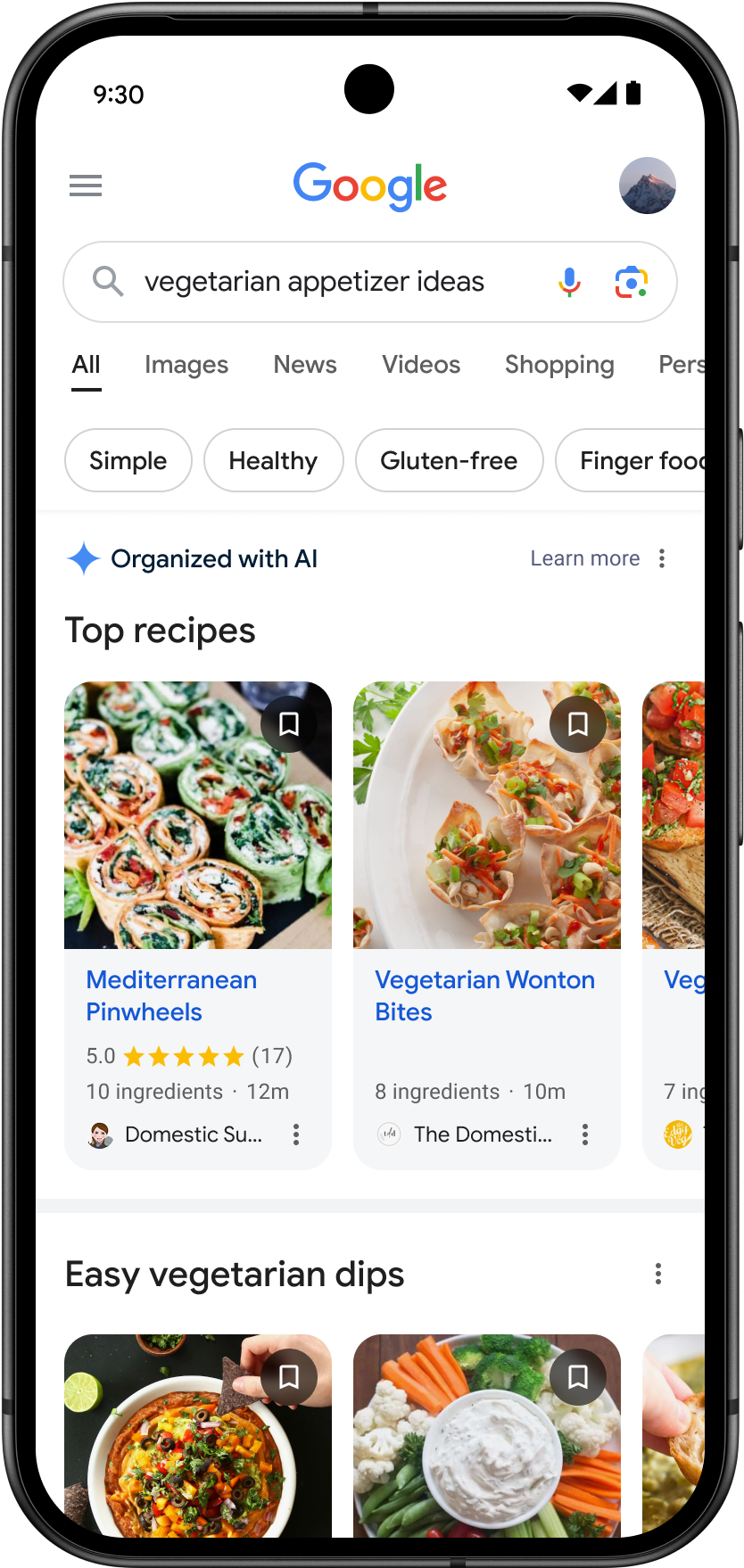Google is introducing AI-organized search results pages in the United States.
The new feature, set to launch this week, returns a full page of multi-format results personalized for the searcher.
Google’s announcement states:
“This week, we’re rolling out search results pages organized with AI in the U.S. — beginning with recipes and meal inspiration on mobile. You’ll now see a full-page experience, with relevant results organized just for you. You can easily explore content and perspectives from across the web including articles, videos, forums and more — all in one place.”
Key Features

The AI-organized pages will compile various content types, including articles, videos, and forum discussions.
Google claims this approach will provide users with a more diverse range of information sources and perspectives.
In its announcement, Google adds:
“… with AI-organized search results pages, we’re bringing people more diverse content formats and sites, creating even more opportunities for content to be discovered.”
Industry Implications
While Google touts the benefits of AI-organized search results pages, the update raises several questions:
- How will the AI-organized pages affect traffic to individual websites? Keeping users on Google’s results page might reduce clicks to source websites.
- With AI determining content organization, there are concerns about potential biases in how information is presented.
- The new format may require new strategies to ensure visibility within these AI-organized results.
- It’s unclear how this change will impact ad visibility.
This update could alter how we approach SEO. We may need to adapt strategies to ensure content is discoverable and presentable in this new format.
Microsoft’s Bing recently announced an expansion of its generative search capabilities, focusing on handling complex, informational queries. Google’s reorganizing of entire results pages appears to be a unique offering compared to Bing’s.
The initial rollout focusing on mobile devices for recipe and meal-related queries aligns with Google’s mobile-first indexing approach.
It remains to be seen how this feature will translate to desktop searches.
Google’s Response to Industry Concerns
In light of the questions raised by this update, we contacted Google for clarification on several key points.
Impact on Search Console Tracking
Regarding how AI-organized search results will be tracked in Google Search Console, a Google spokesperson stated:
“We do not separate traffic by every feature in Search Console, but publishers will continue to see their traffic from Search reflected there. Check out the supported search appearances in our documentation.”
This suggests that while specific metrics will not be available for AI-organized pages, site owners will still be able to access overall traffic data.
Timeline for Expansion
When asked about the timeline for expanding this feature to other categories and regions, Google responded:
“When we previewed this feature, we mentioned expanding this to additional categories including dining, movies, music, books, hotels, and shopping. No further details to share at this time.”
While this confirms expansion plans, Google has not provided specific timelines for these rollouts.
Guidance for SEO Professionals and Content Creators
On whether new tools or guidance will be provided for optimizing content for AI-organized search results, Google emphasized that no changes are necessary:
“SEO professionals and creators don’t need to do anything differently. Search results pages organized with AI are rooted in our core Search ranking and quality systems, which we have been honing for decades to surface high quality information.”
This response suggests that existing SEO best practices should continue to be effective for visibility in these new result formats.
Looking Ahead
Google’s responses provide some clarity but also leave room for speculation.
The lack of specific tracking for AI-organized pages in Search Console may present challenges for SEO professionals in understanding the direct impact of this new feature on their traffic.
The confirmation of plans to expand to other categories like dining, movies, music, books, hotels, and shopping indicates that this update could have far-reaching effects across various industries.
Despite Google’s assurances, new best practices may emerge as the SEO community adapts to this significant change in search result presentation.
We here at SEJ will closely monitor the rollout and report on its effects and what it means for you in the coming months. Sign up for the SEJ newsletter to stay up to date.
Featured Image: JarTee/Shutterstock
